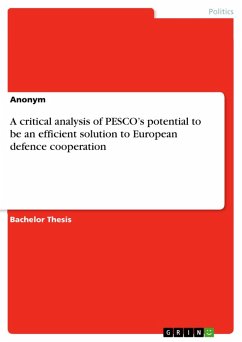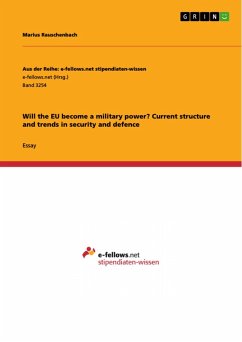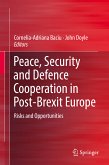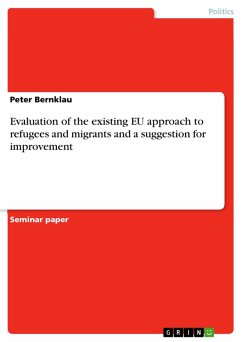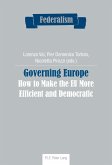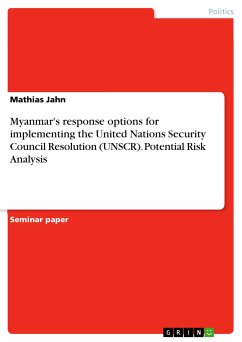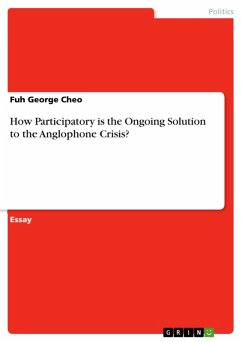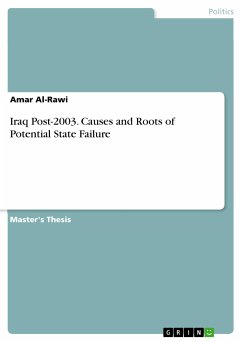Bachelor Thesis from the year 2022 in the subject Politics - Topic: European Union, grade: 1,3, University of Würzburg (Humanwissenschaften), language: English, abstract: The intention of this paper is to analyze, which parts of the PESCO framework have the potential to impact European defence positively in terms of efficiency and which potential fault lines towards efficiency lie in it. Moreover, the intention is to observe the developments since the launch of PESCO in 2017 regarding the question of efficiency and to work out how to overcome current problems and ensure PESCO`s future success. Finally, the paper intends to examine to what extend a coexistence of PESCO and the NATO is useful. To ensure a good understanding of PESCO, it will be shortly presented. Furthermore, the binding common commitments of PESCO, which the participating Member States have agreed on, as well as other essential parts of the PESCO framework, will be highlighted. To work out, whether and how PESCO is an efficient way to coordinate European defence, the following steps will be invested: Firstly, it will be defined what characterizes an efficient way to organize defence, especially in the context of defence cooperation. To do so, a set of factors that regularly lead to an in- or decrease in efficiency in such cooperations is going to be integrated. Secondly, these factors will be applyed to the aims and objectives the participating Member States have committed to, which form the framework of PESCO. To continue, the current situation of PESCO after 5 years and 4 waves of projects will be examined and observed, where the worked-out factors for efficiency or inefficiency and other difficulties occur. Next, ways to solve current challenges, discrepancies, ensure more efficiency and the success of PESCO in general are given. To examine to what extent a coexistence of PESCO and NATO is useful, the relationship between the EU and NATO, the European dependency on NATO, ways PESCO and NATO complement each other and possible fault lines between the cooperations will be observed.
Dieser Download kann aus rechtlichen Gründen nur mit Rechnungsadresse in A, B, BG, CY, CZ, D, DK, EW, E, FIN, F, GR, HR, H, IRL, I, LT, L, LR, M, NL, PL, P, R, S, SLO, SK ausgeliefert werden.

